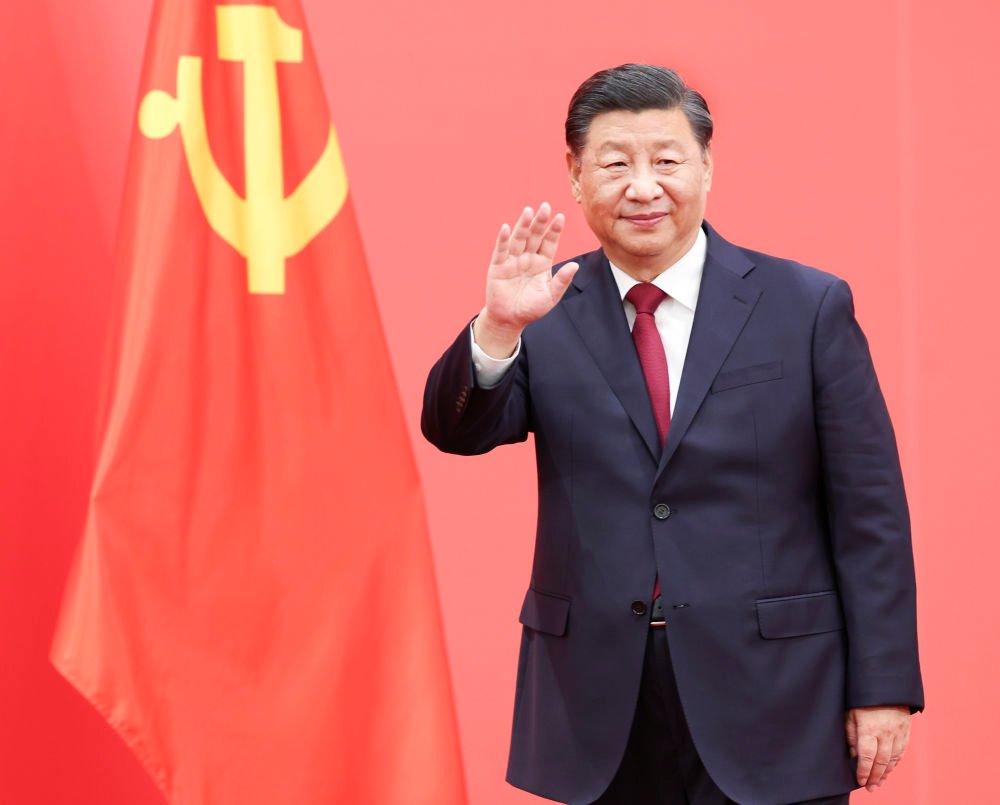Why Doesn’t Xi Jinping Launch a Hot War Over Taiwan?
Because He Wants the World, Not Just the Island.
By Sherry Chen
The Indo-Pacific has been simmering with strategic signals. Taiwan has held joint drills with its coast guard in response to mounting grey-zone pressure from Beijing, including cable cutting and illegal sand dredging near its shores. At the same time, Chinese aircraft carriers have moved past the first island chain, conducting naval exercises near Iwo Jima. In response, the United States has ramped up large-scale logistics operations across Japan, South Korea, and the Philippines to prepare for a possible crisis. To many, these developments point to the looming possibility of war in the Taiwan Strait. But a deeper look suggests something more subtle—and more strategic.
While China’s military is capable of taking Taiwan by force, Xi Jinping’s vision is far more expansive. Xi aims to project Chinese civilization globally. Strategically, he draws on Sun Tzu’s principle of winning without fighting; tactically, he adopts a Go-like approach of encirclement without direct attack. For Xi, now is not the time to strike but to shape.
China does have the muscle to take Taiwan by hard power. The People’s Liberation Army now commands the world’s largest navy, an arsenal of long-range missiles aimed at the island, and a fleet of advanced stealth fighter jets. In recent years, Chinese forces have staged exercises simulating an invasion from island encirclement to joint missile strikes and amphibious landings. The real question isn’t whether Beijing is able to seize Taiwan—but whether it’s willing to pay the price.
Xi Jinping’s global ambition extends far beyond the immediate goal of retaking Taiwan. While Taiwan remains a critical objective, it is not the end in itself. Xi envisions China as a civilizational power that radiates normative influence, shapes international discourse, and redefines ideological leadership across the Global South and beyond. From the Belt and Road Initiative to recent global initiatives like the Global Development and Security Initiative, Xi has carefully cultivated China’s appeal as an alternative to the Western liberal order. Launching a war over Taiwan would jeopardize years of diplomatic investment, disrupt economic partnerships, and damage China’s credibility among developing nations. It would undermine the very narrative China seeks to project: that of a peaceful, responsible, and rising global power. There is little point in winning an island only to lose the world.
Strategically, Xi Jinping’s thinking is influenced by China’s traditional military philosophy, especially Sun Tzu’s idea of “winning without fighting” in The Art of War. Sun Tzu wrote that “the best strategy is to subdue the enemy without fighting,” emphasizing psychological dominance over brute force. This philosophy does not view warfare as the highest form of statecraft. Instead, it emphasizes deception, psychological advantage, and eroding the opponent’s will—through diplomacy, information warfare, and strategic persuasion. The goal is to win at minimal cost, making combat unnecessary.
In contrast, Carl von Clausewitz’s On War frames conflict as a raw, violent extension of politics. He famously called war “the continuation of politics by other means,” arguing that when talks fail, force takes over. Clausewitz saw war as a tool to break the enemy’s will, with no real limit to how far violence might escalate. It’s this hard-edged worldview that many Western analysts use to interpret Xi Jinping’s calls for “national rejuvenation” and “reunification” — reading them as possible signs that Beijing is laying the groundwork for military action against Taiwan.
However, Xi Jinping leans toward a Sun Tzu–style strategy of restraint and environmental shaping. While he has not ruled out using force to take Taiwan, he consistently stops short of pulling the trigger. It is not because he lacks the capability, but because preemptive action goes against his deeper goal of winning without fighting. Rather than launching an invasion, Xi is playing the long game. He is shifting the regional balance of power, applying psychological pressure, and building economic ties that leave Taiwan increasingly isolated and dependent. His hope is that the island will eventually choose unification on Beijing’s terms, with no bullets required.
Xi’s tactics look more like a game of Go than a game of chess. He favors encirclement over direct strikes. Instead of launching a hot war, Beijing leans on deterrence, military drills, and grey-zone pressure to gain advantage without the costs of open conflict. The PLA routinely stages live-fire exercises near Taiwan, including “island encirclement” drills and the “Joint Sword” operation. These shows of force are not meant to trigger combat, but to wear down morale in Taiwan and among its allies—a psychological push without firing a shot. China is also chipping away at Taiwan’s diplomatic ties. It uses trade and political leverage to get more countries to switch recognition from Taipei to Beijing. In 2023, Honduras made the move, further isolating Taiwan in Central America. In the realm of information and influence, Beijing mixes cyber tools, propaganda, and political messaging to shape Taiwan’s internal debate. This pushes the narratives of “shared cultural identity,” meddling in local elections, and framing “peaceful reunification” as the civilized solution on the global stage.
Xi Jinping uses the same playbook in other contested areas. In the South China Sea and East China Sea, Beijing cites its “nine-dash line” to claim historical rights, while quietly building outposts and dual-use airstrips on disputed reefs. His goal isn’t open conflict, but incremental control. Xi relies on time, patience, and steady pressure to build advantage without pulling the trigger, like a strategist laying stones on a Go board.
Xi Jinping hasn’t abandoned military force, but his long-term strategy is to shape the environment systemically, build leverage gradually, and achieve victory without war, through pressure without explosion, encirclement without attack, and domination without direct confrontation.

Sherry Chen is a Research Associate at South China Sea NewsWire (SCSNW), a regional news and analysis platform focused on political, economic, and strategic developments in the South China Sea, and is currently studying in a dual program between Columbia University and Sciences Po Paris.


